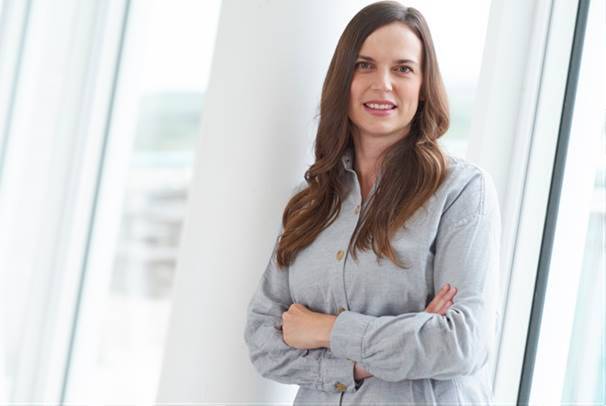Local researcher awarded prestigious fellowship
The world of Augmented Reality will soon be leaping into our everyday lives thanks to the work of award-winning University of Otago scientist Stefanie Zollmann, who has just been granted the prestigious L’Oréal-UNESCO For Women in Science Fellowship 2018.
Augmented Reality
Endless Augmented Reality (AR) possibilities, such as All Black fans accessing game and player statistics in a stadium simply by pointing their mobile phone towards the sports field, are just within reach.
Imagine a world where you could virtually place a friend from Europe in your living room, as opposed to chatting to them via a video call; a world where civil engineers could visualise buried pipes and cables while planning work on a construction site.
Unlike Virtual Reality (VR) where everything you see is generated by a computer, AR adds elements that aren’t there to the real-world experience – similar to social media filters adding layers of information to enhance every real-life experience.
As a computer scientist at The University of Otago, Zollmann’s research into the intriguing world of AR has already demonstrated the many potential benefits of combining computer graphics with our real-world view.
The $25,000 fellowship will allow her to further develop this technology.
“Currently, we only scratch the surface of what Augmented Reality can do. I’m particularly interested in how AR can be applied to outdoor usage, such as in construction works, tourist guides or in navigation,” Zollmann says.
“There’s also plenty of interesting AR possibilities in the entertainment and sport industries – we can explore how fans in a sports stadium can see all the game information they’re used to having while watching a game on the TV, for example.
“Augmented Reality has even greater potential for remote countries such as New Zealand, as it can reduce distance and help people to collaborate, despite being in different locations.”
While it’s a science that still has significant challenges, Zollmann is looking to address these in her future projects.
“These AR applications still face major obstacles, including integrating digital information more accurately over the real environment.
“My research investigates the current gaps in this technology and addresses the issue of missing mapping between digital information and real-world objects. This will allow for the use of Augmented Reality in a wider range of scenarios and open up new research directions in this field.”
Stefanie Zollmann

Born and raised in Germany, Zollmann’s interest in science began when she was very young.
“I love exploring new technologies and, in particular, technologies that have the potential to support us in our daily lives.”
Zollmann says she’s proud to have her research recognised by the L’Oréal-UNESCO For Women in Science fellowship, especially in a year when she has juggled the demands of an international research career with having her first child.
“Obviously, this fellowship will help advance my own career, but I hope it also increases the visibility of women in computer science,” she says.
“I want to motivate female students to move into the computer science field and I also want to show them that this sector can support the combination of a career and a family.”
Aurelie de Cremiers, L’Oréal New Zealand Country Manager says Zollmann is a fantastic example for women considering a career in science.
“The L’Oréal -UNESCO For Women in Science programme has celebrated outstanding female researchers around the world for 20 years and we believe Stefanie’s work will serve as great encouragement for women looking to enter a similar profession,” she says.
“Science is vital for tackling many of the world’s pressing issues, so we’re very proud to support for researchers like Stefanie Zollmann, and ensuring women are fairly represented at all levels in the field.”
Stefanie Zollmann will be presented with her fellowship alongside four Australian recipients in Melbourne on 15 November 2018.
